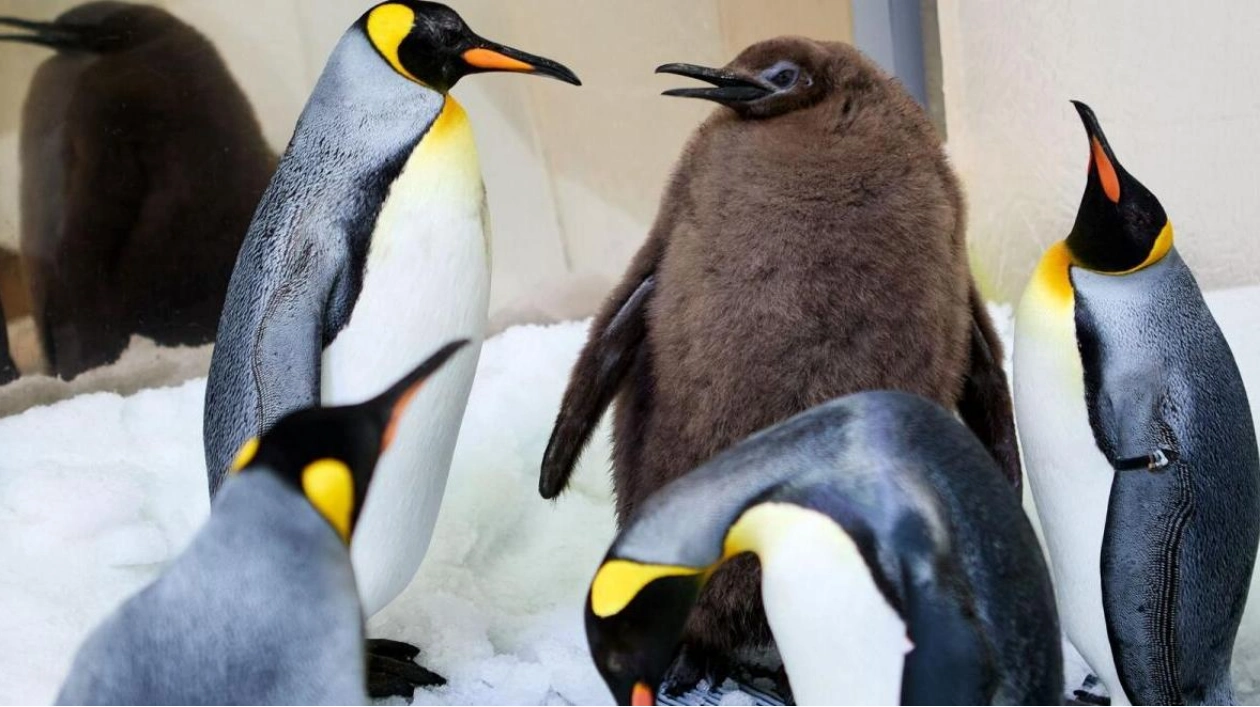At his Australian aquarium home, Pesto the penguin stands tall above the colony, a fluffy brown furball that's impossible to overlook as he waddles across the ice. The nine-month-old king penguin chick has gained fame for his impressive 23.5kg weight—equivalent to an overstuffed suitcase. Pesto already outweighs his parents, Tango and Hudson, who each weigh around 11kg. With a daily diet of up to 25 fish, Pesto's robust frame is set to grow even larger, according to senior penguin keeper Emily Thornton.
Thornton described Pesto as well-behaved, curious, and confident, often engaging with other penguins and his keepers. Despite the attention from human visitors and cameras, Pesto remains humble about his newfound celebrity status. His food-oriented nature makes it challenging to keep him still on the scales for weighing. Pesto is already the largest penguin at Sea Life Melbourne aquarium and has garnered a sizable social media following.
A TikTok video posted by the aquarium, showing two employees dancing behind a disinterested Pesto, has amassed four million views. Pesto's coat consists mainly of dense feathers, essential for keeping warm in the freezing Antarctic temperatures. His large size is also an advantage, as smaller chicks are at risk of being preyed upon by birds in the wild. Genetics also contribute to his size; his ancestors were among the largest and oldest penguins housed at the aquarium.
Thornton noted that Pesto is exceptionally healthy, though larger chicks can be found in the wild. Despite his fish diet, Pesto's feathers have a surprising scent of corn chips. Soon, Pesto will shed his fluffy down and develop adult feathers, featuring a burst of yellow on his head and cheeks and a black-and-white tuxedo. This process is energy-draining, and his appetite will significantly decrease.
King penguins are native to Antarctica, with a population of about 1.6 million breeding pairs. Thornton mentioned that while climate change has adversely affected some penguin species, it has not yet impacted king penguins. In the 19th and 20th centuries, king penguin populations nearly faced extinction due to heavy hunting for their meat, oil, and blubber.






